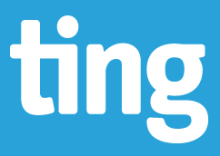Ting! Holly Springs, NC to Get a Gig
While Google Fiber and AT&T focus on the large cities of the Research Triangle of North Carolina, the small town of Holly Springs is pursuing a third option.
Holly Springs will be the third town to see Ting’s “crazy fast fiber Internet.” After a successful foray into the U.S. mobile service market, the Toronto-based company Ting has started to provide Internet service by partnering with local governments. Ting will offer 1 Gbps in Holly Springs by building on the town’s $1.5 million municipal fiber network.
Muni network restricted by state law
Holly Springs, with a population of almost 30,000, has worked hard to improve its connectivity. In mid-2014, they completed a 13-mile fiber Institutional network (often called an “I-Net”) to connect the municipal buildings and other public institutions, such as schools and hospitals.
Unfortunately, when business and residents wanted to connect to the network, a North Carolina state law prevented the town from providing Internet services directly. As it became obvious that Google Fiber would not pass through the town, leaders worked with a consulting company to try to draw in a private Internet service provider (ISP).
Ting! Innovative Partnerships
The locked-up potential of that fiber helped attract Ting. The municipal network's unused fiber will function as a backbone for Ting to deploy its own last-mile infrastructure, which will provide connectivity directly to homes and businesses.



